
What’s your first thought when someone mentions interviewing developers for a job with your company?
You might be thinking of skill assessments or questions about programming languages.
And you aren’t wrong—those are all essential elements that you should touch on when conducting an interview.
However, you should also ask questions that determine if the candidate is a strong cultural fit for a team.
In this article, we’ll examine the most important culture fit interview questions so you can assess if a developer’s values are synchronized with those of your organization.
Take notes!
Table of Contents
Tell us about a problem/situation that you have successfully solved.
This question can be very beneficial in learning more about a candidate’s technical skills, but it can also reveal if they would fit your workplace culture.
When you ask them to tell you about a problem they solved, you get a peek into their mindset and process.
A survey by Stack Overflow reveals the most common methods of solving problems among developers—it’s likely that current members of your team also use them.

It will be a good cultural fit if your potential new developer has a similar process as the rest of the team.
Also, you can tell how they think about the problems by how they talk about them.

Get unreal data to fix real issues in your app & web.
For instance, Steve Barker, a senior software engineer, revealed on Quora the most challenging problem he faced as a developer.
For a good cultural fit, more important than the specific problem is how the developer thinks about it—in his case, in terms of productivity.

Wording can reveal a lot. You probably don’t want a developer who moans and panics about a problem but one who sees it as an opportunity to learn and put all their skills to the test.
Share an example of how you dealt with unexpected deadline changes.
This is one of the questions you should ask to see how well your potential new hire works under pressure.
Working under pressure is common in most tech companies, so it’s important to have developers who can put their heads together.
When the deadline unexpectedly changes, you want developers who can stay calm, not spread tension and panic through the rest of the team, as Hüseyin Polat Yürük advises.
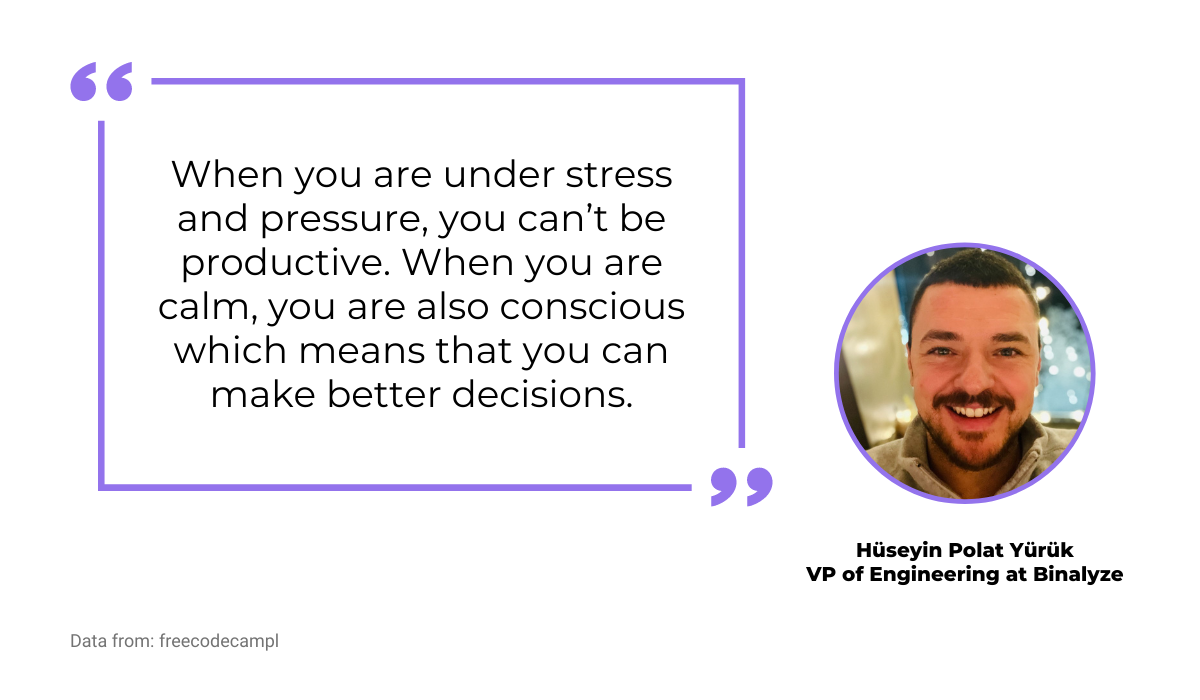
Asking about the way they deal with deadline changes can show you if your interviewee has an established process for those situations.
If they do, that’s a good sign that they would be a good culture fit for your team.
Dealing with stress well indicates that they value preparation, flexibility, adaptability, and other essential traits for developers.
Also, you can find out if your interviewee is someone like this developer below.

You might see this kind of behavior as resourcefulness, or you might see it as cutting corners—that depends on the workplace culture you want to encourage.
Regardless, this question can tell you how a developer handles pressure, which can be crucial when push comes to shove.
When you work in a team, what is your go-to role?
The answer to this question can shine a lot of light on a developer’s previous experiences, expectations, and even personality traits.
For example, if they say their go-to role is scrum master, that already tells you a lot.
You know the type of team they mainly worked in until now: a scrum master is a specific role within a team that works with the Agile framework.
If your team works like that, too, a new developer could be a great fit.
Also, that role implies certain values and personality traits.

For instance, a scrum master is a role that requires nurturing transparency among team members.
It also calls for high self-organizational skills to encourage the team to be proactive and challenge their boundaries. And so on.
You can do that kind of analysis for any role developers point out as their go-to one.
If they were mainly front-end developers, you could assume that they’re proficient in communicating with clients since that role requires frequent user contact.
The developers’ go-to roles in a team are a window into their skills and personalities, so use it to your advantage.
Have you ever made a decision that has primarily put customers’ needs first and if yes, can you give an example?
This question can show you if a developer has their priorities in line. Customers’ needs certainly should be one of them.
Most developers are aware that working with strictly technical elements in mind isn’t enough.
The customer-first approach is a standard by now, and your potential new developer should have a story to tell you about their care for customers’ needs.
Their positive answer indicates that they accept responsibility for a product and that they’re developing it with a user in their mind—a trait that is a great fit for any team.
That approach is important for the team’s success and even for the business as a whole. According to Statista, 20-25% of users don’t tolerate bad experiences with apps.
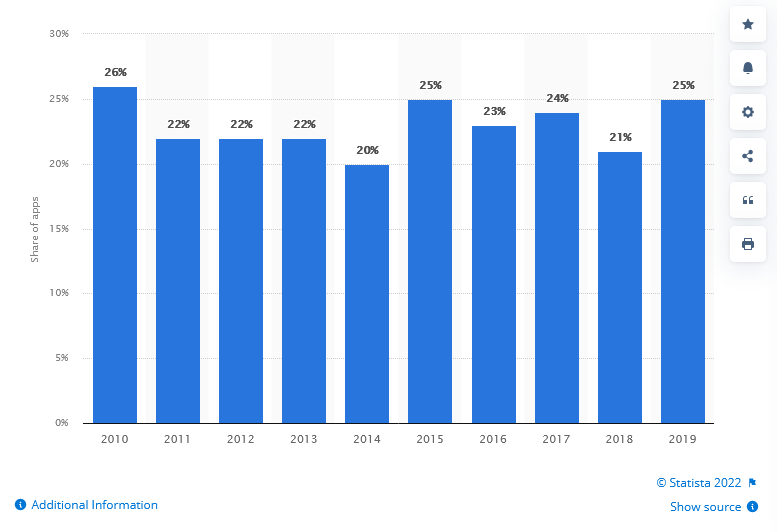
Take a look at the experience that Adobe Creative Cloud Express users have with their app.
It’s clear that the developers made decisions by prioritizing customers’ needs.
For example, a simple but robust tutorial is at the users’ disposal, but they still have the freedom to explore the app on their terms.
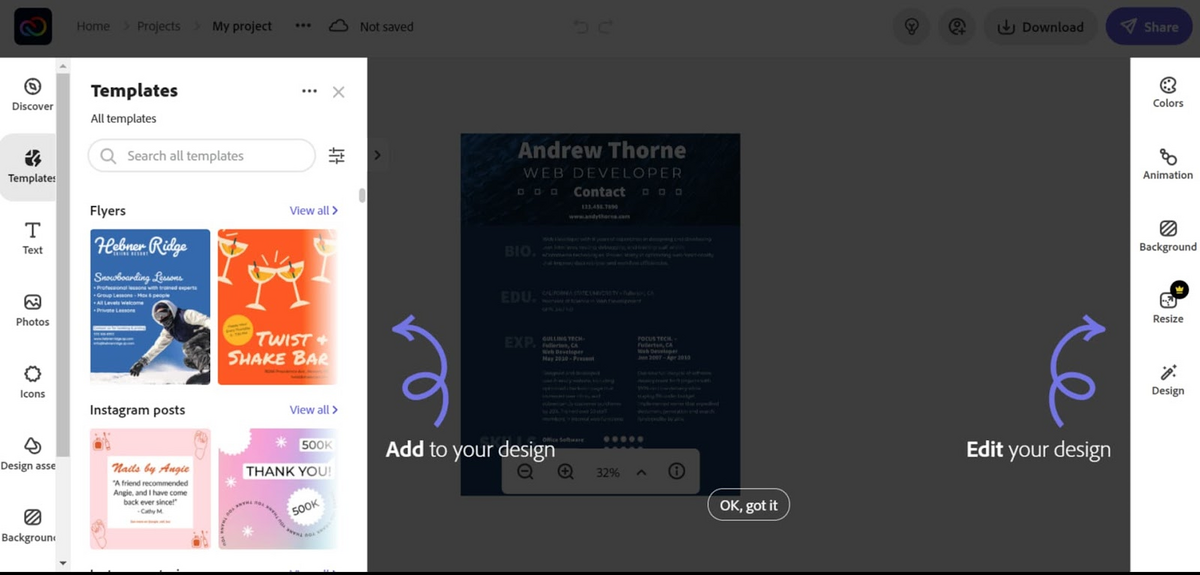
When you hire new developers, you should consider someone who thinks like that. Putting customers’ needs first is a positive approach to work that pays off in the long run.
Can you give an example of a time when you failed at something and how it felt?
Developers who embrace failure as a part of their job have an approach that can be an excellent fit for most team cultures.
Questioning them about times when they’ve failed can show you how they carry themselves when the job isn’t so pleasant.
Regardless of whether it’s a minor issue or a significant problem, you can see from their answer if they consider failure an opportunity to learn or blame everyone but themselves.
If they lean towards the latter, that can be a red flag.
For example, Adam Hughes has had his share of failures in his career, considering them a good thing.
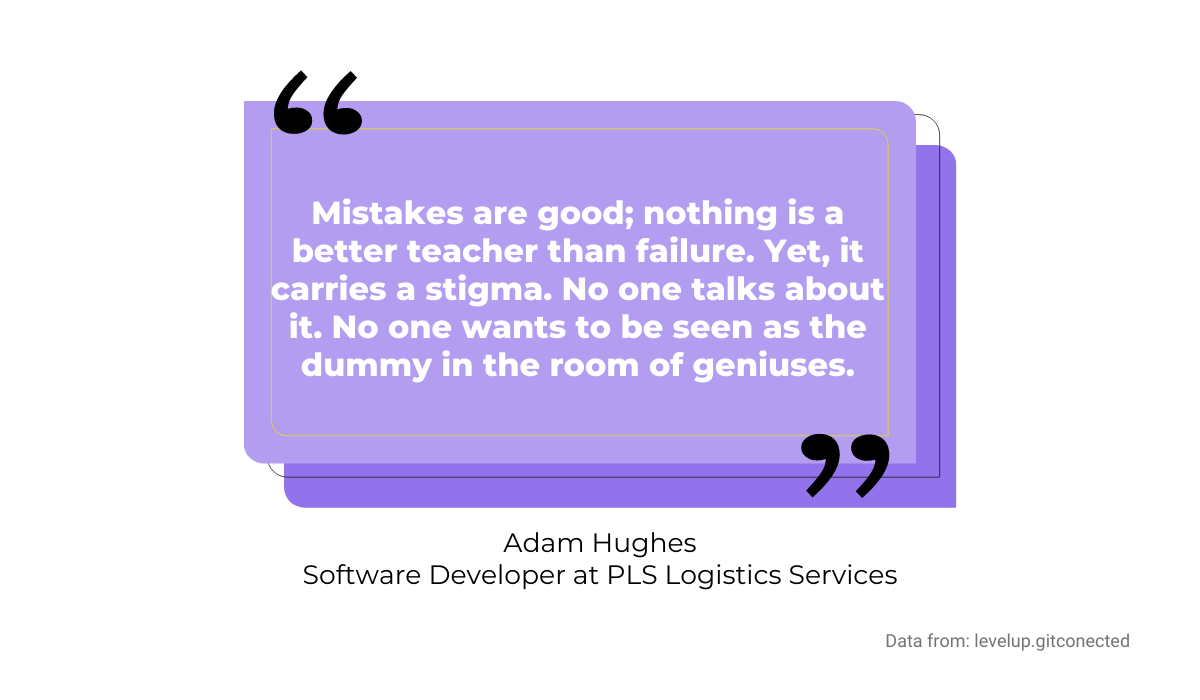
As he recalls, he accidentally deleted a thousand active URLs of his company’s users with his automated system.
The team managed to fix his mistake, and he was very grateful. However, he was also crushed because of his manager’s negative comments, and it took him some time to recover.
It’s important to remember that mistakes can happen to anyone.
If a developer accepts responsibility, works with his team, and emerges stronger after them, they can fit into any culture.
Describe your ideal workday.
This question can show you what your potential new developer values at the workplace and whether they would fit your culture well.
You can learn, for example, what kind of workplace environment they consider ideal. If they say they enjoy working from home, that would be a perfect fit if you are hiring a remote developer.
That can also tell you more about their work habits. For example, that answer can indicate that they prefer working alone, so you can assess if that fits into your workplace culture.
However, you shouldn’t jump to conclusions before you question them more—a preference for that type of work can also mean that they highly value productivity.
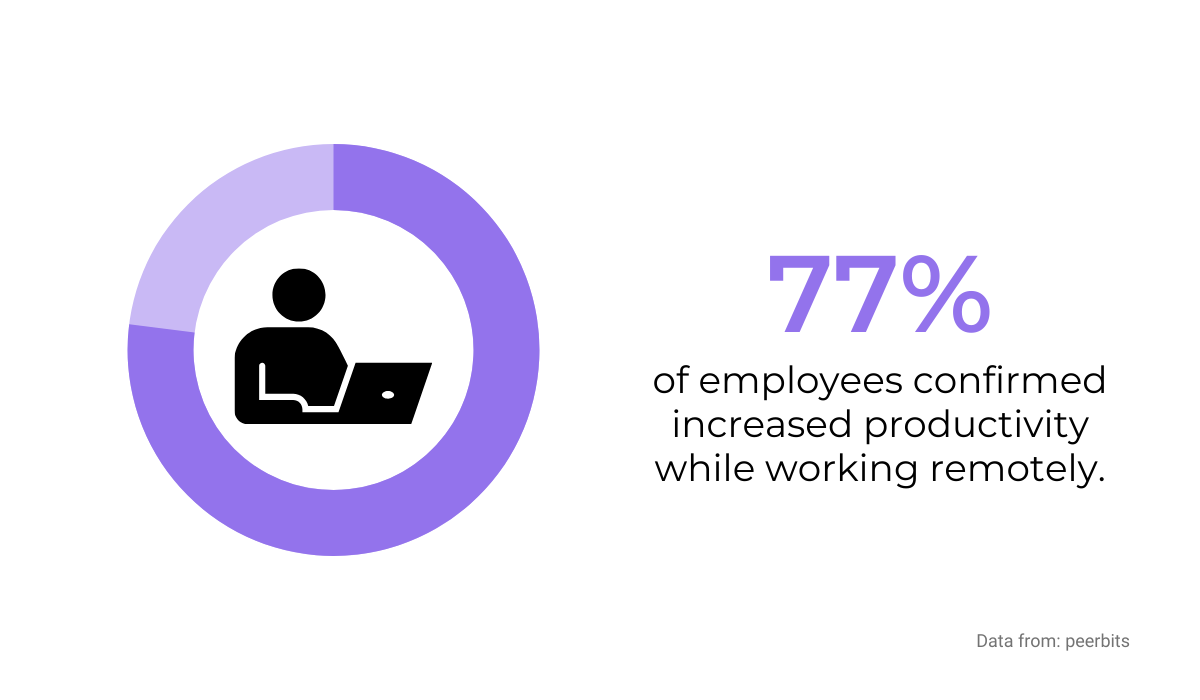
An answer to this culture fit interview question can show you your potential new hire’s attitude towards software development in general.
For instance, Kartik Ayyar, a former Google engineer, doesn’t necessarily consider coding a part of his ideal workday.
Instead, a great day is a day when he makes a breakthrough, as he puts it in his Quora post.

Pay close attention to your interviewees’ answers to this question, and you can discern if your business is the one that can provide them with the kind of workplace culture they can thrive in.
Which management style brings out the best in you?
Management styles in software development can vary greatly. Some leaders prefer to micromanage, others allow their developers’ freedom, and many are somewhere in between.
Not every developer will be able to give their all under every management style.
That’s why you should use this question to assess whether the candidate and your management style would make a good fit.
For example, if your management style is laissez-faire, which means that you mostly leave your developers alone and give them freedom in their work, you should choose developers who work best under those conditions.
Someone who is in the 23% of employees who prefer detailed instructions from their manager most likely wouldn’t be a good fit for that team.
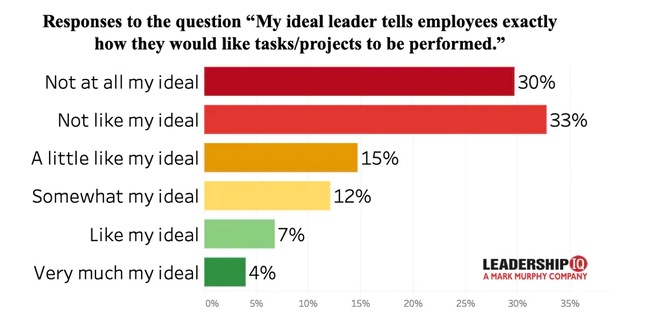
Furthermore, their personality traits also cause them to prefer one work process more than the other.
For instance, according to Indeed, there are four management styles specific to software development:
- Waterfall
- Agile
- Scrum
- Strategic
Assessing if your management style can bring the best out of a new developer is crucial both for them and your team’s productivity.
The autonomy, flexibility, and teamwork needed for a successful Agile approach won’t suit every developer.
Which expectations do you have of your senior leaders?
Your interviewee’s expectations from their senior leaders can indicate whether they can fit into your team.
Every developer has some expectations from their leaders—it’s just a question if they are aware of them.
If they can verbalize them while answering this culture fit interview question, that indicates that they have a firm understanding of their own strengths and weaknesses.
For example, they might expect appreciation of their work from their senior leaders. According to research by Glassdoor, more than half of employees expect that so they can perform better.
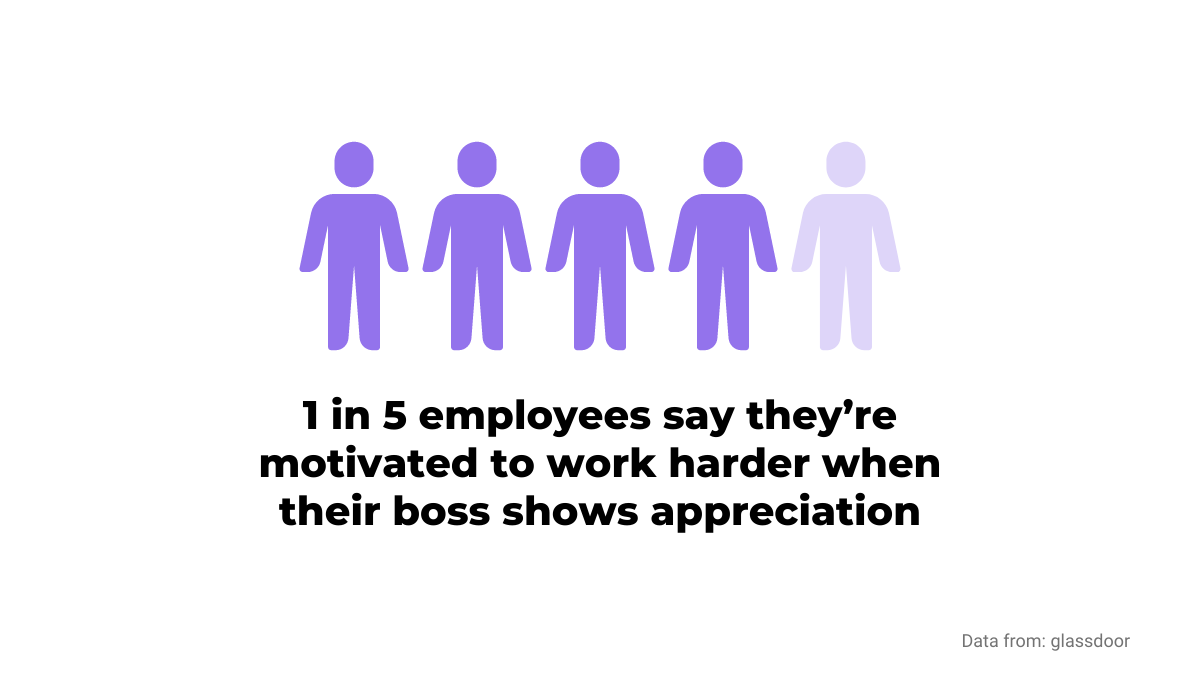
If their expectations don’t match what your leadership can offer, that might be a sign to reconsider hiring them.
For instance, if they expect a leader who innovates and pushes them creatively, and your senior leaders focus more on delegating tasks, would they make a good fit?
You probably know the answer.
Have you ever disagreed with your team lead, and how did you resolve the disagreement?
Working in a team means that sometimes there’ll be disagreements; that’s inevitable.
More important than trying to hire someone who, theoretically, won’t ever disagree with anyone is hiring someone who knows how to handle disagreements.
The way they approach disagreements helps you assess if a developer has a problem with authority and do they value collaboration and good relationships in teams—that’s all crucial for a good culture fit.
Someone who’s hot-headed and believes they’re always right can be a bad fit for the team, regardless of their technical skills.
That’s why many team leaders, like Katharina Messner, point out the importance of being a good team player.
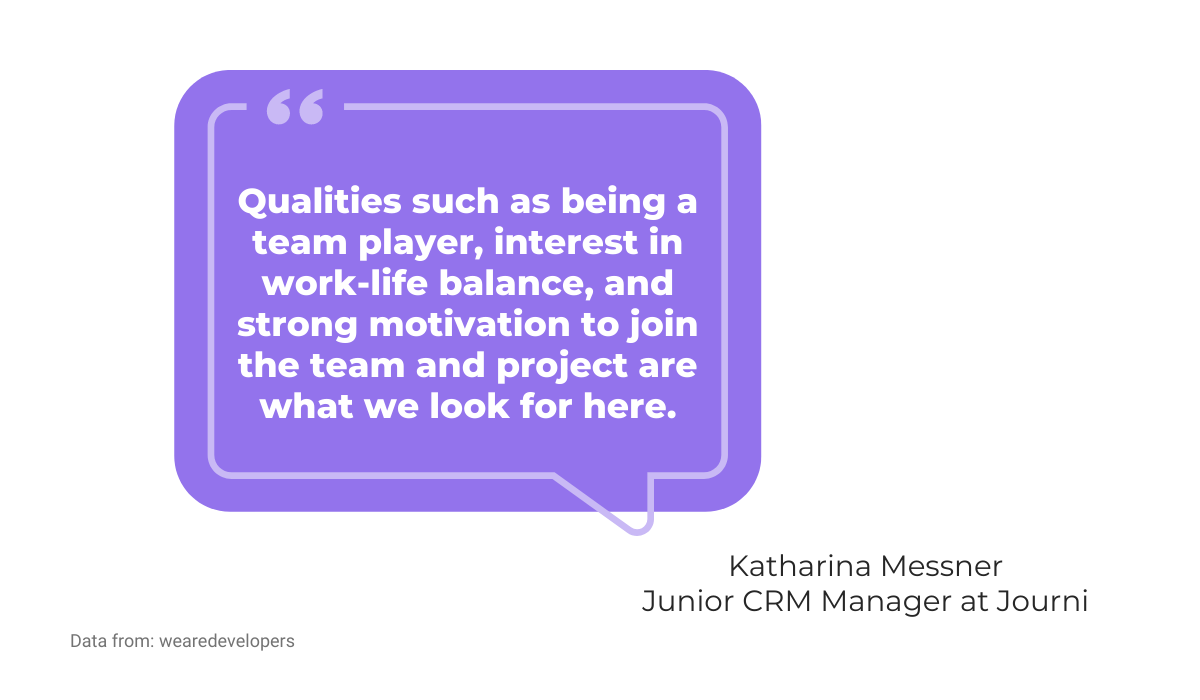
Some developers know that disagreeing with the team leader isn’t a dealbreaker, yet not knowing how to resolve disagreements can be.
That makes them a good cultural fit for most teams because of their people skills. As Quora user Rudranghsu Das puts it, nuance in communication is key.

Of course, you don’t want a developer who would constantly butt heads with everybody, even if they know how to resolve it.
However, someone who is firm and passionate, but still tactful enough to let others shine as well is likely to fit right into your culture.
What are your thoughts on becoming friends with co-workers?
Having a relaxed, friendly atmosphere in your software development team is a big part of workplace culture.
If your potential new hire believes being friends with co-workers is important, you might be looking at someone who’s an excellent culture fit for your team.
It’s easy to see why. A friendly person most likely is easy to collaborate with. They’re communicative, enjoy activities with co-workers both during and after work, etc.
That is an important factor in fostering a healthy workplace culture.
Furthermore, according to a survey by Globoforce, cited on SHRM, 62% of employees who have friends in the workplace wouldn’t leave their job if the opportunity arose.
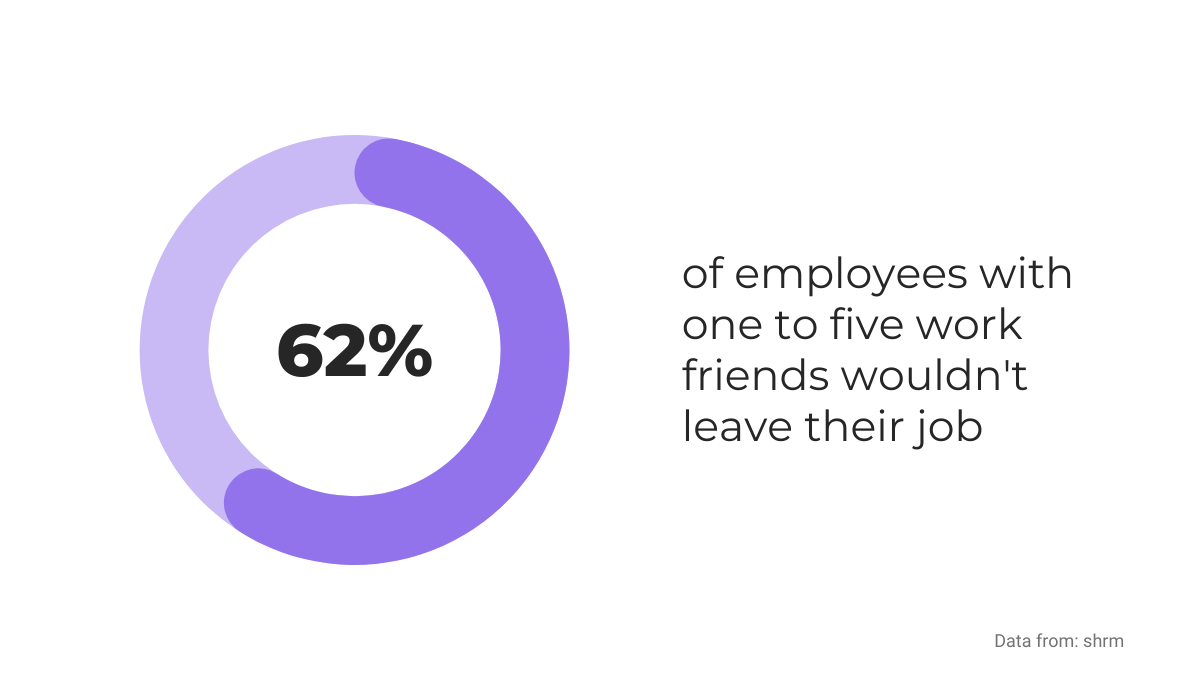
After all, your developers spend a lot of time together every day, so hiring someone who is reluctant to form friendly relationships can be detrimental to the whole team.
In short, as HR recruiter Julia Y. Manuel explains, workplace friendships simply make those day-to-day activities more enjoyable.
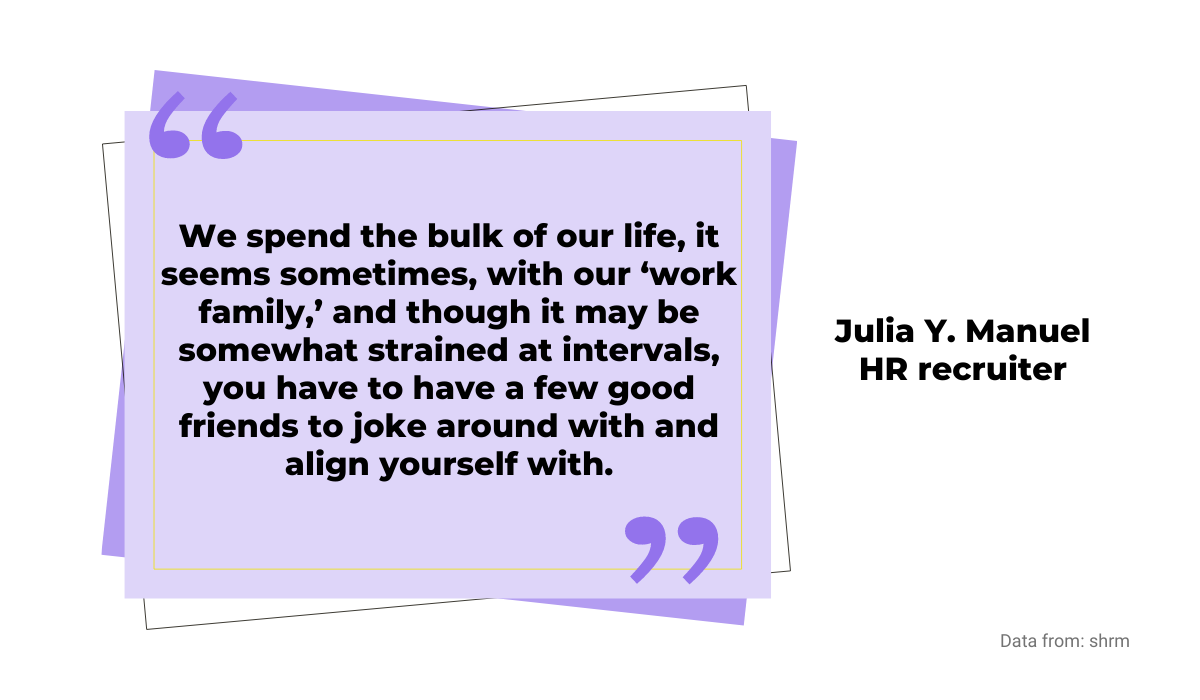
Hiring a developer who values work friendships can improve workplace culture as a whole, so you should consider asking them their thoughts on the matter during a job interview.
Why do you want to work for us?
This is a common culture fit interview question that could reveal if your potential new developer has an understanding of your organization, its goals, and values.
Their answer can show you if they have a career path in mind or are just taking any job they can.
For example, Monzo, an online bank, is a company that has strong values, and they emphasize them a lot.
They pride themselves on being transparent, empathetic, and inclusive to their employees and customers.
They often run campaigns, like their latest, in which they launched a feature that blocks gambling transactions and thus helps their customers who have a gambling problem.
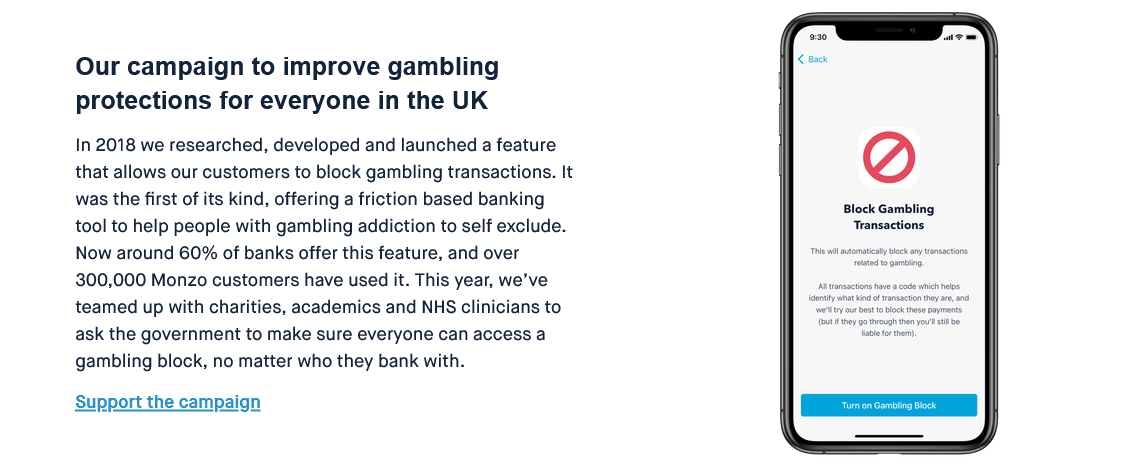
Monzo expects that their developers share the values they’re promoting so that they can fit into their culture.
It’s the same with your organization. You should hire people interested in working with you and who want to achieve the same goals.
An answer to this interview question can show you if that’s the case or if a developer just wants a steady paycheck.
There’s nothing wrong with that, but it may not be the kind of candidate you’re looking for.
Do you have any questions?
This classic job interview question could show you if the candidate did their homework on your organization.
Someone who doesn’t have any questions for their potential employer could be seen as uninterested in the job or, at the very least, interested only in their salary.
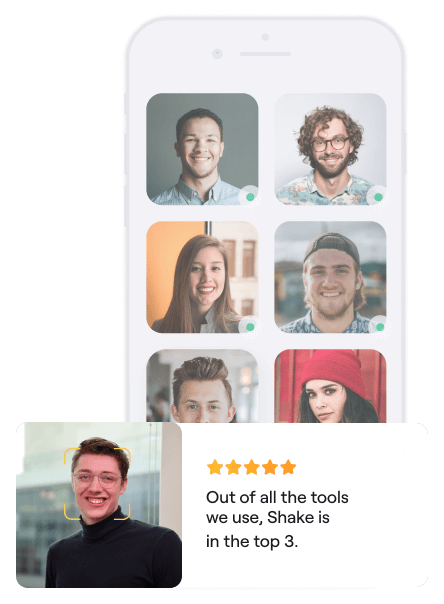
Very handy for handling user feedback. CTOs, devs, testers – rejoice.
Questions that show genuine interest in the company, the work process, and the company’s goals show you a developer wants to fit into your team’s culture—that they want to work for your organization, not just any organization.
As Joanna Tropp-Bluestone explains, candidates can miss a valuable opportunity if they don’t ask their potential employer any questions.
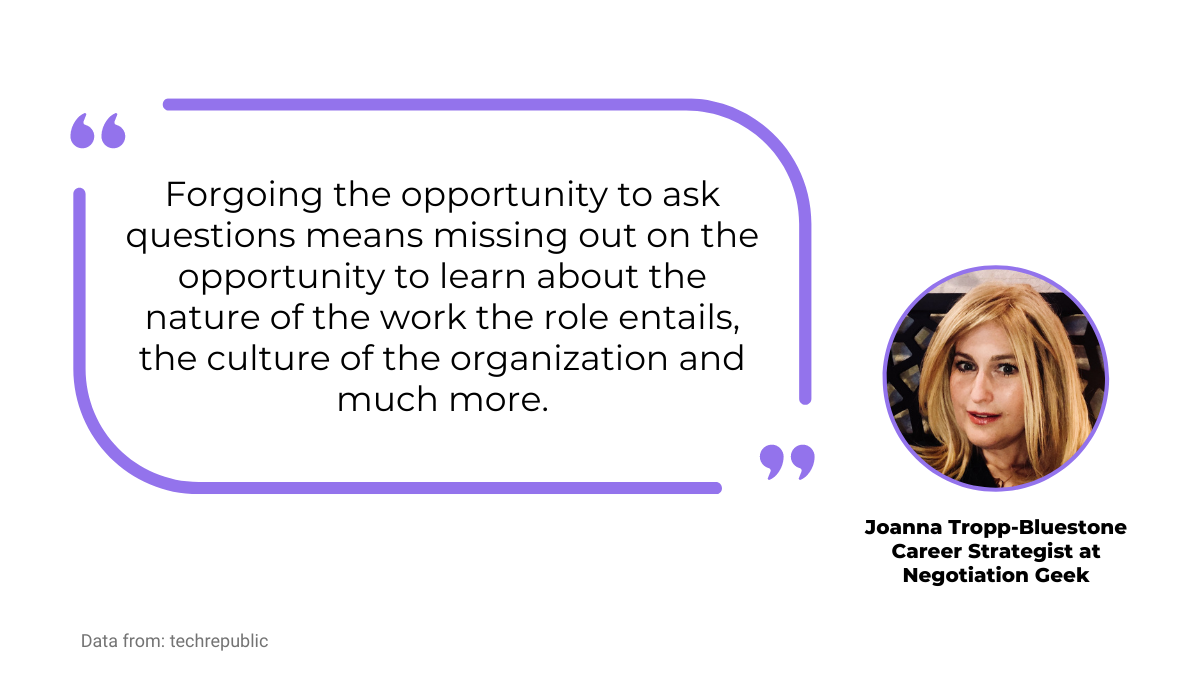
Can someone who doesn’t show any interest in your organization be a good culture fit? It isn’t very likely.
In the long run, they may show that they are a genuine part of the team, but why risk it with someone who doesn’t want to know about their role, projects they’ll be working on, day-to-day life in the company, or any other of endless elements that comprise a workplace culture.
Conclusion
Finding the right candidates for your software development team is hard.
Not only do you have to find someone whose skills are in alignment with the needs of your organization, but you also should find someone who is a good fit for your team’s culture.
However challenging it might be to find, a strong cultural fit is necessary—it allows your developer to be as happy and productive as possible, and your team can become even better.
Asking questions we’ve listed in this article is a starting point towards reaching that goal.





